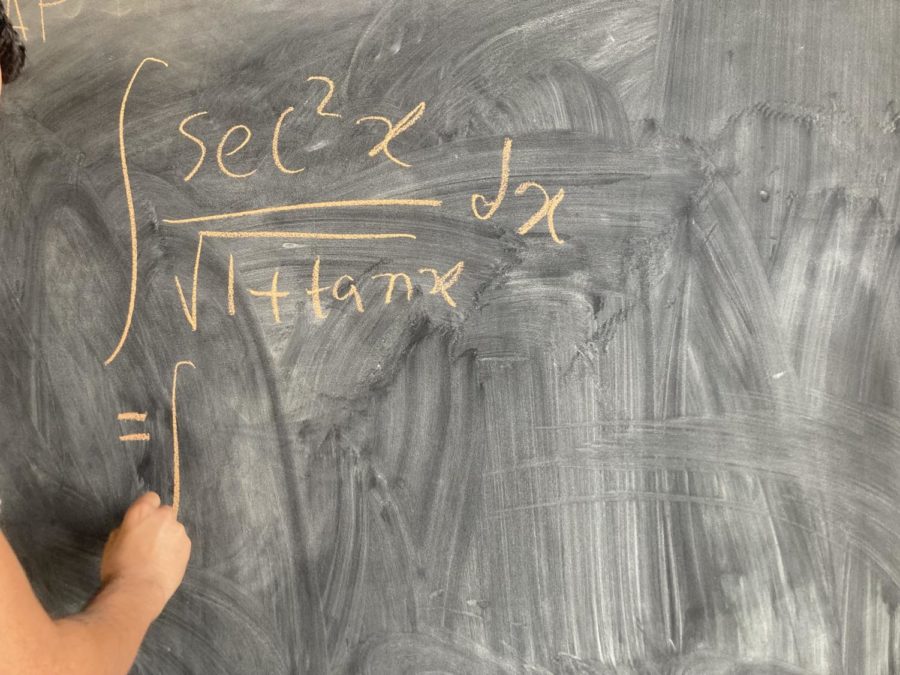How to Study (And Perhaps Enjoy) Maths
May 25, 2022
Maths. One of the ‘big three’ subjects in school, alongside English and Science. Most people are indifferent about the subject, it seems. There are also people who hate it. And there are a few who enjoy it too.
Personally, maths is one of those subjects that just make sense. Perhaps it because there’s usually one correct answer, or that all you have to do is use formulas to solve the questions. On the other hand, subjects like English are subjective, and are therefore objectively bad.
So, how do you study maths?
Speaking from personal experience, ‘doing’ and studying maths is always the same, no matter the course, stage, or topic. It goes a bit like this:
Step 1: Learn the formulas and concepts
Step 2: Use the formulas and concepts
Step 3: Get the correct answer
Quite simple, isn’t it? It’s only when you actually try it that it becomes difficult.
Step 1: Learn the Formulas and the Concepts
If you’ve ever used a Cambridge textbook before, you may have noticed that they have ever so helpfully placed all the formulas and concepts into highlighted boxes in the explanations of each exercise.
- For Cambridge textbooks Years 11 and above, key formulas and ideas are placed in orange boxes for each concept and formulae.
- For Years 7 to 10, important ideas are summarised into dot points in the “key ideas” boxes. Another nifty resource they provide is the “Chapter Summary” page after the end of every chapter – the textbook literally gives a one-page summary of ALL the formulas of each chapter!
Now it’s up to you to remember the content. But what’s the best way to do that? I would personally recommend two methods:
- Study notes
- LOTS of practice (this will be talked about later)
Making your own study notes is quite helpful because you go through the content by yourself, summarise it, and can look back on it in the future. Depending on your learning style, it really is up to you on how to make your notes. There are some things to consider though:
- Readability & Organization – are you able to easily read and understand your notes? Can you add to them or modify them?
- Accessibility – can you easily access your notes? Digital or handwritten?
- Coverage – do your notes include every formula and concept related to the topic?
To tick all these boxes, I normally do the following:
- Write down the formulae and concepts into my exercise book as my teacher teaches in class
- Then, at home, go through the explanations for each exercise in the textbook
- Copy down the formulae and concepts into my digital notes, categorising them by exercise and topic
- Refer to my digital notes while doing homework and practice questions
It’s really up to you, whether you would rather collate your handwritten notes into an extra exercise book, make digital notes using a Microsoft Word document, make physical flashcards, or just not make notes at all…
My digital notes typically look like this – I copy over my handwritten notes from class and add on anything I miss using the textbook exercise explanations.
Step 2: Use the Formulas and the Concepts
Part of being able to use the formulas and the concepts is to learn how to use them in the first place. Having only knowledge and no experience won’t get you very far.
So how do you learn how to use the mathematic formulas and ideas?
Practice.
Doing questions and practicing is how you get better at maths. The more questions you do, the better you understand and memorise the equations and concepts. The more questions you do, the easier you will be able to identify patterns and immediately recognise how to get the answer.
So, with that in mind, these are the steps I take when studying:
- Read through the worked questions at the start of each exercise in the textbook
Make sure you understand the working they do. Try doing the same question by yourself and see if your working and answers are the same!
- Do the questions in the exercises.
Whenever I feel unsure about the concepts I’m applying, I mark every question as I do them so that I can correct my understanding. If you are already confident in the topic, skip to the ones that you think you may have trouble on. If they are too difficult, go back a few questions.
- Go through resources such as past papers and revision sheets
There are a BUNCH of resources on Connect. Go to your Maths class page and click on the unit or folder names in the “Course Outline” (they should be blue and clickable). These folders should have a lot of random resources uploaded by teachers over the years, such as past papers, revision sheets, and whatnot!
The internet has even more stuff available, although mainly for Year 9 and above. Resources include THSC Online, Bored of Studies forum, Ace HSC, and more (these sites have notes and resources for many HSC subjects). There are sites like Khan Academy and Woo Tube which have videos explaining topics, formulas, and concepts in great detail.
The library also has books for the main subjects in the HSC – they have notes, summaries, and practice questions as well.
Step 3: Get the Correct Answer
The final step is pretty self-explanatory but doing it is difficult. On each question you attempt, you must:
- Recall the formulas and concepts
- Apply the formulas and concepts
- Write working without making any silly mistakes
- End up with the right answer
At this point, you should have done this process a lot of times already – when doing the questions in the textbook exercises, when doing past papers and when doing random revision questions.
However, getting the whole thing to work during an actual exam is the rough part.
It all boils down to your understanding of the concepts and formulae and experience with the questions. The more questions you attempt and learn how to do, the easier it is for you to see patterns and get the answer. And the less mistakes you will make.
In summary, studying (and doing) maths can be done in three steps:
- Learn the formulas and concepts
- Use the formulas and concepts
- Get the correct answer
By using the resources you have (textbook, your teacher, online resources), practicing as many questions as you can, and building your experience with questions, you can study maths. And perhaps, you might find it enjoyable along the way.












